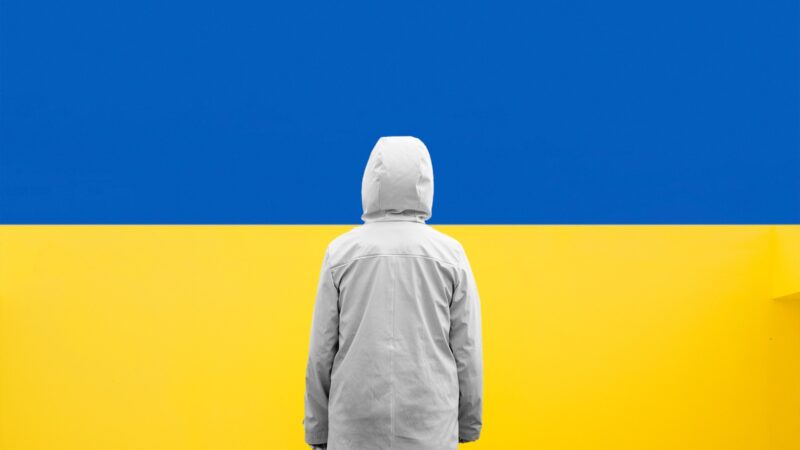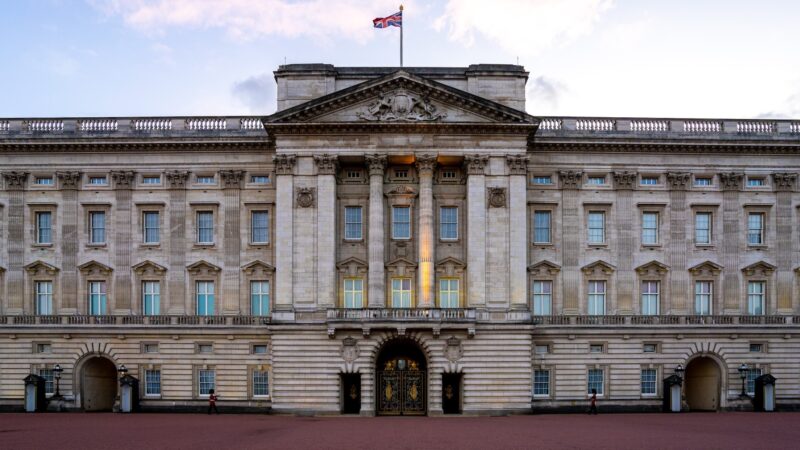As the Russia-Ukraine Crisis crawls into the second month of conflict, humanitarian disaster, and media sensationalism, many passive observers of the situation have been wondering who is to blame for the biggest military conflict in Europe since 1990’s Yugoslavia.
Mainstream media, OSNIT Twitter experts, and heads of state all make substantial claims about the culprits, the causes, a variety of predictions for the outcomes, and “solutions” that do nothing to actually solve the issue other than to speculate needlessly and obfuscate the reality on the ground in order to garner as much engagement as possible from the online community, and inflame hatred on both sides – dumbing down the debate to kindergarten levels of maturity, driveling the issue down to just another “Kony 2012” bandwagon for everyone to jump on.
In the West – particularly NATO member nations such as the United States and the United Kingdom – there has been a certain disregard for introspection and self-criticism in regards to the lead up to the current conflict. While the reality may not be as clean or as pleasant as we want, the current crisis in Ukraine is hardly a new development, nor had the invasion of Ukraine been completely out-of-the-blue as many pundits make it out to be.
This conflict has been ongoing for the last decade – it seems that most discussing the current escalation are willfully ignorant of that fact.
The people of Donbass, Luhansk and other Eastern oblasts of Ukraine have suffered under similar war-like conditions and humanitarian crisis since the beginning of the Ukrainian Civil War in 2014. No one in the West has cared about it, nor paid any thought, hashtags, or great displays of solidarity for those who have suffered since then – only now paying attention as the conflict escalated from a local regional conflict to a nation-wide one as soon as the Russians directly became involved – all with the help of actually being televised, of course.
Framing the issue as an “attack on the territorial sovereignty”, “democracy”, or “self-determination” of Ukraine is not only blatantly dishonest – it’s entirely hypocritical. Where were the calls to recognize the territorial sovereignty or democratic will of the separatist regions who no longer felt that their interests were represented in Kiev?
Nowhere, of course. Because it wasn’t “our side”.
For most, the finger of blame for the escalation of tensions to all-out war in Ukraine has been pointed directly at Russian President Vladimir Putin for activating the “special military operation” and invading Ukraine. For others the responsibility lies with Ukrainian leadership not compromising on territory claims and security concerns the Russian government has had, and the failure to follow the standards set by the Minsk II protocol signed in 2015. Many others lay the blame with NATO for encroachment and not taking Russia seriously or engaging in any sort of constructive dialogue with Moscow.
As the issue has been brushed aside, ignored, and unaddressed by Western powers who could’ve negotiated a peaceful resolution that would’ve put an end to the bloodshed years ago, the cock has truly come home to roost – metaphorically speaking. By not seriously engaging with any sort of dialogue with the Putin regime, attempting to make a buffer of any sort that addressed the security concerns of both sides, and by not prioritizing the safety of civilians on the ground but rather their own expansion, NATO has done nothing but help fan the flames of this conflict.
NATO, of course, cannot be “blamed” necessarily for the conflict at large. For what it’s worth, as a security organization it has been rather beneficial in creating a level of stability and bipolarity in European politics. It wasn’t always ideal, nor fair, but as a product of its time – the Cold War – it did a lot more good than harm in balancing power and security in the 20th century.
It may have acted as a bulwark against the threat of Soviet Communism back then, but as the Cold War ended it has changed with the unipolarity of the late 1990’s and early 2000’s.
Today, NATO is merely an extension of American security and political power. It has shaped the Western world and its response to threats from an American perspective, prioritizing Washington’s concerns above all others. It is entirely a fabrication that the responsibility and configuration of NATO is somehow shared between its member nations; that’s symbolic rather than the actuality. This has been observable in the past couple of years as the projected power of NATO has been growing weaker without an immediate perceived threat, and European member states skimping out on funding the organization or actively seeking alternate security solutions – such as the push for a militarized European Union separate from NATO.
How coincidental that as the crisis in Ukraine has developed, the re-emphasis of NATO power has occurred as it was staring at its dissolution after American security failures in Afghanistan and the rest of the Middle East?
NATO, of course, is composed of all sorts of characters and figureheads – both military and political – who maintain and grow the institution the way Washington needs it to. In the last two decades one of the largest forces in shaping how NATO (i.e. Washington D.C.) operates in Eastern Europe and in regards to Russia has been Victoria Nuland, who is currently serving as the Under Secretary of State for Political Affairs in the Joe Biden administration.
If anyone can be sourced as holding key responsibility for laying out the foundations for the current crisis unfolding between Ukraine and Russia, it is her.
–
Victoria Nuland has been described as “brash” “blunt” and “crude” by many who have worked with her, either through the State Department or as her counterparts across Eurasia. The Washington careerist Nuland has spent most of her life entrenched firmly in the circus of the US State Department, climbing the ladder of power with a ferocious tenacity and iron-set will to shape Washington’s policies across the world.
It would be commendable, if her efforts weren’t completely driven by neoliberal globalist ideology that props up the status quo powers and elite D.C. political class. We can see how close she is to the establishment elites, after all she’s married to the co-founder of the Project for the New American Century and Council on Foreign Relations member, Robert Kagan.
Nuland has found herself in a variety of powerful positions throughout her tenure in Washington – from deputy director of Soviet Union Affairs under Clinton, to being the US Ambassador to NATO during the Bush administration, to Assistant Secretary of State under Obama’s 8 year reign. The Under Secretary has previously worked closely with some of the most hawkish characters in Washington, having directly answered to Dick Cheney as his deputy national security advisor, and with Hillary Clinton as the spokeswoman for the State Department.
With mentors and colleagues like these, it is no wonder that Nuland has been able to entrench herself into the new administration rather safely. She doesn’t pull her punches, even if it would be the smart thing to do – preferring to ideologically shoot from the hip with her diplomacy and think later about the consequences of her actions – if at all.
Her attitude and approach to diplomacy may have allowed her to gain many fans in Washington, as brazen approaches are often applauded in the D.C. swamp – but it hasn’t gained her much of a fanbase among European diplomats. Her policy of ignoring the efforts of EU leadership to try and fix diplomatic relations with Russia, and by shipping weapons to Ukraine during the Obama years directly acted against the advice and fears of many EU nations who worried it would escalate tensions with Moscow.
Rather than her actions being a product of her career, Nuland seems to be a true believer in the diplomacy she practices, almost delusionally so. In 1997, along with former Senator Richard Lugar, Nuland published Russia, Its Neighbors, and an Enlarging NATO: An Independent Task Force Report; in which it was “concluded” that NATO should be able to expand into Europe, and that Russian concerns or perceived security threats were unjustified – any attempt to negotiate or compromise should be disregarded. The report is rather short, but statements and conclusions are entirely delusional and a product of liberal elitist thought – the only way for Russia to participate in this changing world would be to cede its own sovereignty and self-determination in order to join the “New Europe” and the authority of NATO (ie. Washington).
I imagine that any Russian authority who were in the effort of trying to rebuild a nation after almost a century of communism and centralized bureaucracy would see the terms laid out in the Nuland report and laugh in disbelief. Trading one bureaucracy for another, but this time with less sovereignty and being subjected to the whims of a former rival.
In the very same report, the issue of Ukraine is emphasized. The task force agreed that NATO’s “doors shall remain open” for Ukrainian membership. Of course we know today this has been one of the driving motivations for Russian engagement in Ukraine, has been the threat of NATO expansion towards Russia’s border with Eastern Europe and one of Russia’s vulnerable corridors for invasion.
Nuland has been wanting, and working hard to ensure that Ukraine joins the American sphere of influence. Whether this is a personal mission, given her Jewish-Ukrainian ancestry, or whether this is completely career-driven doesn’t matter. It has led to disastrous consequences regardless of the motives.
One only needs to look at the Maidan protests and 2014 coup d’etat that Nuland was a key figurehead in orchestrating – a leaked phone call with the then US Ambassador to Ukraine Geoffrey Pyatt shows how instrumental Nuland was in hand picking the pro-West Ukrainian Arseniy Yatsenyuk administration that took over after the expulsion of Viktor Yanukovych’s Moscow-friendly government during the “Revolution of Dignity”. Whether or not the previous government was a “Moscow puppet” matters little, when the United States and NATO conduct the same actions that they accuse Russia of – infringing Ukrainian democracy and self-determination – even if it is through more covert means.
While the massive shake-up of the government took place, NATO also funded and armed the infamous neo-nazi “Azov Battalion” to conduct operations in the Eastern Ukranian separatist regions, with disastrous humanitarian consequences for civilians in those regions. Everything from wanton destruction to residential areas, kidnappings, and even crucifixions – Azov Battalions have not only been blamed for this, they take pride in their cruelty.
It seems that the US State Department made it a policy during the 2000’s and 2010’s to arm and aid the most depraved groups of people, whether it has been Islamsist militias in the Syria or neo-nazi paramilitaries in Ukraine in order to fulfill their policy goals without getting their own hands dirty – with innocent civilians suffering the most due to this short-sighted, or willfully ignorant decisions.
–
Of course in the mind of someone like Victoria Nuland, the ends justify the means. But what exactly are the ends?
Is it to “stabilize” Ukrainian democracy?
As Zelensky has purged opposition parties and political rivals have been arrested and tortured, we can see by the lack of condemnation that that’s hardly the priority.
Is it to “secure the sovereignty” of Ukraine?
The whole reason this mess has occurred is because Nuland ignored Ukraine’s sovereignty in order to place her own political pawns into positions of power – so claiming that they’re trying to do this is laughable.
Is it to “prevent the humanitarian crisis and deaths of civilians”?
This conflict has been ongoing for a decade, with tens of thousand already dead or displaced before Russia stepped foot into the region. Where were the actions to prevent the humanitarian crisis that has existed for the past decade?
So what are the ends? Because the narrative that Washington and the mainstream media are pumping out are hardly grounded in reality.
If I was a gambling man, I would wager that the end goal of this crisis that has been created is multifaceted; waging the media war against the Russian Federation has been ongoing for the past decade – many Americans, particularly those in red states and from working class backgrounds see the more conservative culture of Russia and the strongman figure embodied by a leader such as Putin as a viable alternative to the current American society that empowers the elite Washington D.C. political class and desecrates the rest of the country. Many saw Trump as a leader like that, after all.
Regime change in Russia to bring it into the “global society” and the confines of internationalism is also a possibility. Nations can’t be seen as breaking away from the “rules-based order”, as that would not benefit Washington D.C. or global institutions like the United Nations or World Economic Forum that have infiltrated the top levels of government and society in order to push their own agendas under the guise of “democratic will”. However, I think this is far stretched and I think the horse has bolted in regards to this scenario – Russia has been cut-off, and I don’t think anyone at the Pentagon or the State Department wants to get involved with what would be a severely messy operation to pull off in trying to oust Putin and his loyalists from power.
What I think is the most plausible situation is actually rather outside the box. As the United States recedes as a global superpower under the weight of its recent failures and crumbling domestic situation, the best way to prevent any other rising power from gaining a foothold at the top is to make a chaotic situation that is so out of control that no-one could possibly control it.
Ukraine has so far proven to be far from a “clean” operation on the ground for the Russians. Victoria Nuland has done a rather outstanding job of shaping Ukraine to be so emboldened by their own ideas of fighting for their “sovereignty” and crafted such a unique identity separate from Russia that they will likely continue to be a rather large thorn in the side of Russia for decades to come, regardless of the outcome of this current war. Russia will be exhausting itself and its resources trying to control the situation.
So while the United States may not be “directly” involved with securing the situation on the ground, at least Washington can be guaranteed that Russia won’t be able to do it either despite their close proximity. All the Americans have to do is keep pumping weapons and resources to keep ground-forces fighting or causing a logistical headache, and in the meantime they can refocus their priorities to other, more pressing situations – namely domestic security.
But if those are indeed the “ends”, are they justified?
To any rational, morally sound and peace-loving person, of course not.
But as we have seen time and time again, Washington D.C. and the elitists that occupy the highest seats of government will create their own justifications, even if completely false or out-of-touch, in order to fulfill their own goals of self-preservation and holding on to power.
This reason, above all, is why Victoria Nuland has been perfectly fit for the job that she has undertaken for the past two decades. Because she embodies those very same insane values.
And Washington D.C. loves her for it.



